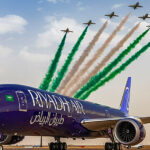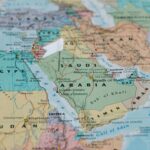112 trafficked African Grey parrots head back to DRC
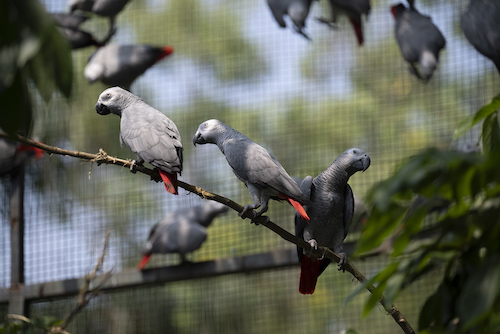
Parrots seized in Turkey
In a significant victory for wildlife conservation, 112 African Grey parrots have been successfully returned to the Democratic Republic of Congo (DRC). This marks a pivotal moment in the global fight against the illegal trafficking of endangered species.
The parrots, cruelly smuggled for the exotic pet trade, are part of a larger group of 309 wild birds seized in Turkey en route to Iraq, Kuwait, and Thailand.
In a post on World Parrot Trust (WPT), Rowan Martin, PhD, wrote that the birds included 252 African Grey parrots, a species listed as endangered due to their massive capture from the wild to fuel the pet trade.
The parrots were found hidden among other species, including Red-fronted parrots, which are still legally traded under international regulations. Following their interception by Turkish authorities, the parrots were transferred to a wildlife park in Turkey, where plans for their repatriation to the DRC were initiated.
Overcoming hurdles in repatriation
The journey back to the DRC was not without challenges. One of the most significant hurdles was securing transport for the parrots. However, Turkish Airlines, the same airline that had been used to traffick the parrots, agreed to fly them back to Kinshasa, the capital of the DRC, free of charge.
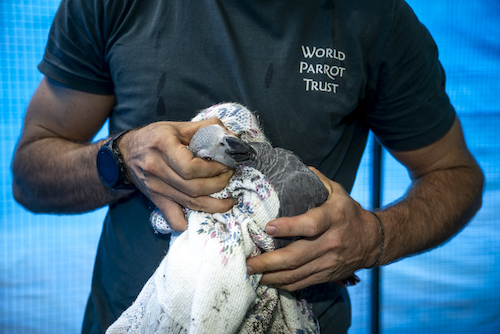
The gesture was made possible through collaboration with the United for Wildlife programme, an initiative under the Royal Foundation of the Prince and Princess of Wales dedicated to combating wildlife trafficking across global transport networks.
The WPT worked closely with Turkish Airlines to facilitate the safe and swift return of the parrots. Previous investigations by WPT exposed how traffickers exploited the airline to smuggle Grey parrots in the past. This repatriation effort signals the importance of continued partnerships between conservation organisations and transportation companies in tackling wildlife trafficking.
Temporary care and transport to Kindu
Upon arrival in Kinshasa, the parrots were temporarily housed and provided medical care at the Jardin Zoologique. Dr Steven Janssen, a wildlife veterinarian and the WPT’s Wild Parrot Care Coordinator, travelled to Kinshasa to assist with the parrots’ health assessments and oversee their transport to Kindu, a city in Maniema Province.
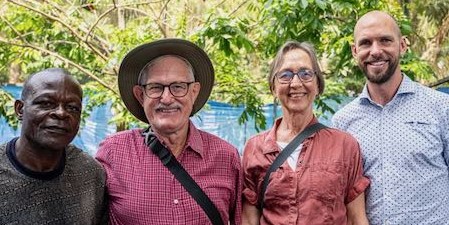
In Kindu, the parrots were taken to the Dingi Parrot Conservation Centre, part of the Projet de Protection des Perroquets (P3C), a conservation initiative implemented by the Lukuru Foundation and supported by the WPT. The centre has been prepared to accommodate this new group of parrots, with new aviaries under construction to house them while they undergo rehabilitation.
Rehabilitation and release plans
The next phase of the parrots’ recovery will involve quarantine, thorough health checks, and rehabilitation before their eventual release into the wild. The aim is to restore their populations in the Lomami National Park, a crucial habitat for African Grey parrots in the DRC. Dr Janssen has been actively involved in the rehabilitation process, providing training and capacity building for local staff at the Dingi Centre to ensure the parrots receive the best care possible.
“We are incredibly grateful to all the people and organisations who have been part of this effort, especially the team at the Lukuru Foundation, the Turkish authorities, Turkish Airlines, and the Jardin Zoologique. It has been a long and challenging journey, but seeing these parrots finally arrive in Kindu, knowing they will soon be flying free once again, has made it all worth it,” said Dr Janssen.
A message against wildlife trafficking
The excitement surrounding the parrots’ return has captured the attention of the Congolese media, with national TV and radio coverage highlighting the landmark event. This successful repatriation sends a clear and powerful message to those involved in wildlife trafficking.
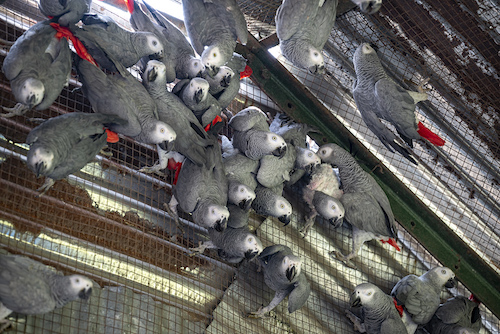
Radar Nshuli, a Institute Congolais pour la Conservation de la Nature (ICCN) representative, stated: “These parrots may have escaped control at our airports, but they have been stopped in Turkey and are now back in the DRC. We want people to know that when it comes to protected species, you will be stopped no matter where you go. We will track down all those who destroy our nature.”
Yves Milan Ngangay, the Director General of the ICCN, confirmed that the traffickers involved in this illegal trade have been brought before the courts and will face the full consequences of their actions. The investigation is ongoing, with a commitment to ensuring that the traffickers are held accountable.
This repatriation is a crucial step forward in the fight against wildlife trafficking. It highlights the ongoing collaboration between international organisations, airlines, and local authorities to protect endangered species like the African Grey parrot. As efforts continue to restore the parrot populations in the DRC, the hope is that these actions will inspire further global efforts to prevent illegal trade and safeguard wildlife for future generations.
Hero image: The WPT worked closely with Turkish Airlines to facilitate the safe and swift return of the 112 African Grey parrots. Credit: Steven Janssen






